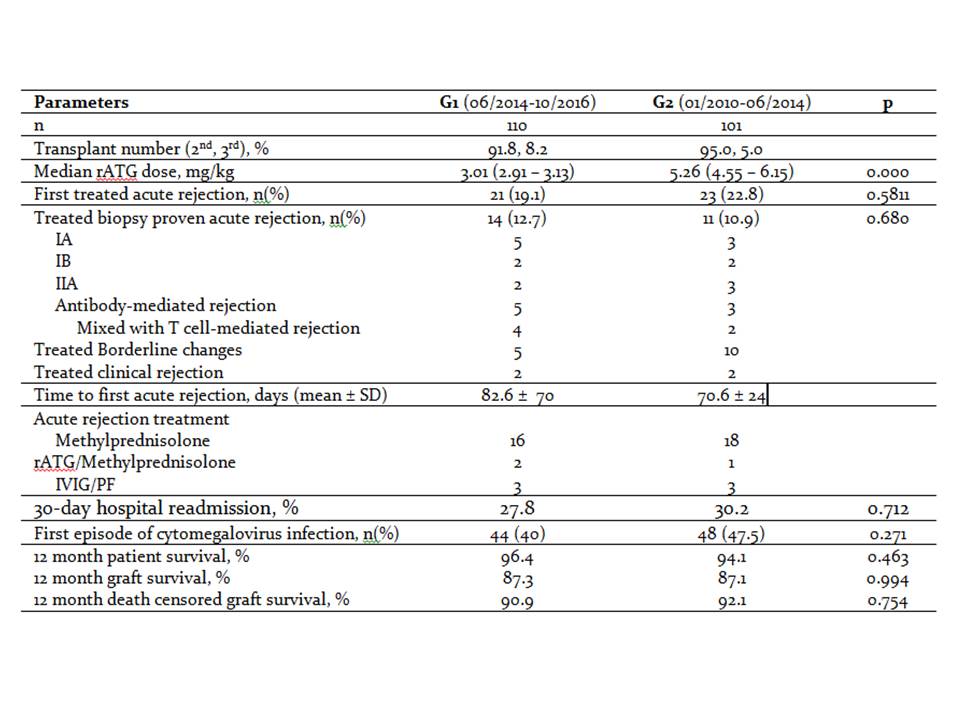Reduced Intensity Induction Therapy in Patients Undergoing Repeat Kidney Transplants
Hospital do Rim, Nephrology Division, EPM - UNIFESP, São Paulo, Brazil
Meeting: 2019 American Transplant Congress
Abstract number: D89
Keywords: Induction therapy, Kidney transplantation, Rejection, Survival
Session Information
Session Name: Poster Session D: Kidney Acute Antibody Mediated Rejection
Session Type: Poster Session
Date: Tuesday, June 4, 2019
Session Time: 6:00pm-7:00pm
 Presentation Time: 6:00pm-7:00pm
Presentation Time: 6:00pm-7:00pm
Location: Hall C & D
*Purpose: We hypothesized that patients without donor-specific antibodies (DSA) undergoing repeat transplants could receive lower doses of antithymocyte globulin induction (rATG), without compromising efficacy and perhaps with improved safety.
*Methods: Since June 2014 all consecutive recipients of repeat kidney transplants without DSA detected by single-antigen bead assay [mean fluorescence intensity (MFI) <1.500 at loci A, B and DR] received induction therapy with a single 3mg/kg dose of rATG (G1, n=110). This group of patients was compared with a historical cohort of patients receiving the standard 5 daily doses of 1mg/kg of rATG (G2, n=101). We analyzed the incidence and severity of acute rejection (Banff 2017) and used 30-day hospital readmission and the incidence of CMV infection as surrogates for regimen associated safety (none of the patients received pharmacological prophylaxis). Patient and graft survivals were calculated using the Kaplan-Meier model and differences were determined by Log-rank test.
*Results: There were no differences in demographic characteristics, including the proportion of deceased donor kidney transplants (90 vs. 94.1%), median cold ischemia time (24 vs. 22 hours), and delayed graft function (63.6 vs. 61.0%). Patients were maintained primarily with tacrolimus (99% vs. 99.1%), mycophenolate (98% vs. 88.2%) and rapid steroid taper (100% vs. 100%). There were no differences in key efficacy and safety parameters shown below.
*Conclusions: These data suggest that in patients without DSA undergoing repeat transplants less intensive induction therapy is effective and safe compared to the standard of care dosing regimen.
To cite this abstract in AMA style:
Linhares K, Cristelli M, Felipe C, Viana L, Proença H, Marco REde, Pestana J, Tedesco H. Reduced Intensity Induction Therapy in Patients Undergoing Repeat Kidney Transplants [abstract]. Am J Transplant. 2019; 19 (suppl 3). https://atcmeetingabstracts.com/abstract/reduced-intensity-induction-therapy-in-patients-undergoing-repeat-kidney-transplants/. Accessed February 22, 2026.« Back to 2019 American Transplant Congress

